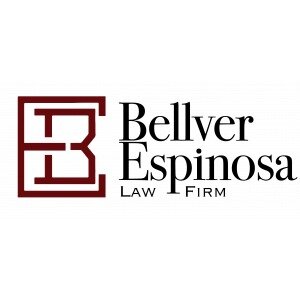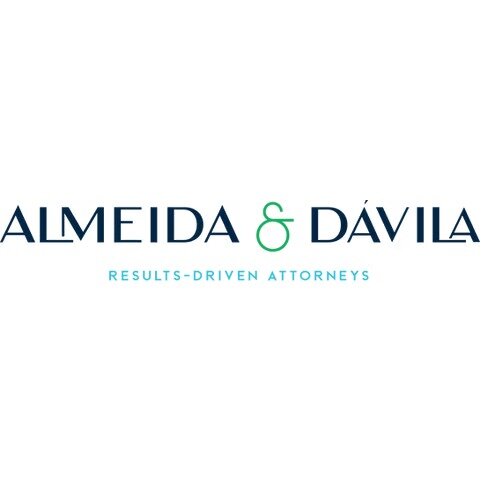Best Bankruptcy & Debt Lawyers in San Juan
Share your needs with us, get contacted by law firms.
Free. Takes 2 min.
List of the best lawyers in San Juan, Puerto Rico
About Bankruptcy & Debt Law in San Juan, Puerto Rico
Bankruptcy and debt law in San Juan, Puerto Rico, is designed to provide relief to individuals and businesses overwhelmed by financial obligations. Puerto Rico, as a U.S. territory, follows the federal Bankruptcy Code while also being influenced by local statutes. The main types of bankruptcy filings available in San Juan include Chapter 7, Chapter 11, and Chapter 13, each offering different paths for asset liquidation or debt repayment. This area of law is intended to give debtors a fresh start while ensuring creditors are treated fairly.
Why You May Need a Lawyer
Seeking legal advice in the realm of bankruptcy and debt is crucial for navigating complex legal processes. Individuals may require legal assistance for several reasons, including:
- Determining the most suitable type of bankruptcy for their situation.
- Understanding Puerto Rico's specific debt collection and consumer protection laws.
- Defending against creditor lawsuits or foreclosure actions.
- Negotiating debt settlements or restructuring with creditors.
- Filing bankruptcy paperwork accurately and efficiently to avoid dismissal or penalties.
Legal professionals provide guidance and representation throughout these processes, ensuring compliance with all relevant laws.
Local Laws Overview
While federal bankruptcy law primarily governs proceedings in San Juan, Puerto Rico�s local laws can influence how cases are managed. Key local factors include:
- Exemptions: Puerto Rico has its own set of legal exemptions that allow debtors to retain certain assets during bankruptcy.
- Consumer Protection Laws: These laws regulate debt collection practices, providing added protections against unfair or deceptive acts by creditors.
- Homestead Protections: Local laws may offer additional protections for primary residences, which can greatly impact bankruptcy proceedings.
These unique aspects of local law can significantly affect the outcome of bankruptcy and debt relief cases.
Frequently Asked Questions
What types of bankruptcy are available in Puerto Rico?
The primary types of bankruptcy available in Puerto Rico are Chapter 7 (liquidation), Chapter 11 (reorganization, typically for businesses), and Chapter 13 (repayment plan). Each offers different solutions based on individual financial circumstances.
How does filing for bankruptcy affect my credit score?
Filing for bankruptcy will likely decrease your credit score initially. However, it also offers the chance to rebuild credit over time by resolving outstanding debts.
Can I file for bankruptcy without a lawyer?
While it is possible to file for bankruptcy without a lawyer, it is generally not recommended due to the complexity of the legal procedures involved and the stakes at hand.
What property can I keep in bankruptcy?
Puerto Rico law allows for certain exemptions that let you keep essential property, such as a primary residence, work-related items, and some personal belongings, depending on the specifics of your case.
What debts are dischargeable in bankruptcy?
Most unsecured debts, such as credit card debt and medical bills, can be discharged. However, certain obligations, like student loans and recent tax debts, are typically not dischargeable.
Will I lose my home if I file for bankruptcy?
Not necessarily. Filing for bankruptcy can sometimes help protect your home through local homestead exemptions or by restructuring mortgage debt under Chapter 13 bankruptcy.
How long does the bankruptcy process take?
The length of the process varies: Chapter 7 may take several months, whereas Chapter 13 can last three to five years due to its repayment plan nature.
What is the difference between Chapter 7 and Chapter 13 bankruptcy?
Chapter 7 involves liquidating assets to repay creditors, while Chapter 13 allows for restructuring and repaying debt over time, often preserving more personal property.
Can all my debts be dismissed through bankruptcy?
No. Some debts, like child support, alimony, certain taxes, and certain student loans, are not generally dischargeable in bankruptcy.
How can I stop creditor harassment?
Filing for bankruptcy triggers an automatic stay, which legally halts most collection actions by creditors, offering immediate relief from harassment.
Additional Resources
For those seeking assistance with bankruptcy and debt-related issues in San Juan, the following resources may prove helpful:
- Puerto Rico Department of Consumer Affairs (DACO): Offers consumer protection information and resources.
- U.S. Bankruptcy Court for the District of Puerto Rico: Provides essential forms and filing information for bankruptcy proceedings.
- Legal aid societies: Various non-profit organizations offer free or low-cost legal assistance for qualified individuals.
- American Bar Association: Offers resources and referrals for finding qualified bankruptcy lawyers.
Next Steps
If you need legal assistance with bankruptcy or debt issues in San Juan, Puerto Rico, consider taking the following steps:
- Assess Your Situation: Gather all relevant financial documents, including bills, income statements, and records of assets and liabilities.
- Consult a Legal Professional: Seek out a lawyer specializing in bankruptcy and debt with experience in Puerto Rico's legal system.
- Prepare Financial Statements: Work with your lawyer to prepare accurate and detailed financial statements for submission.
- Attend Court Hearings: Be prepared to attend hearings as part of the bankruptcy process if required.
- Follow Up: Stay engaged and maintain regular communication with your legal advisor throughout the process to ensure your case is handled effectively.
Through careful planning and the aid of a seasoned legal professional, you can navigate the complexities of bankruptcy and debt law in San Juan effectively.
Lawzana helps you find the best lawyers and law firms in San Juan through a curated and pre-screened list of qualified legal professionals. Our platform offers rankings and detailed profiles of attorneys and law firms, allowing you to compare based on practice areas, including Bankruptcy & Debt, experience, and client feedback.
Each profile includes a description of the firm's areas of practice, client reviews, team members and partners, year of establishment, spoken languages, office locations, contact information, social media presence, and any published articles or resources. Most firms on our platform speak English and are experienced in both local and international legal matters.
Get a quote from top-rated law firms in San Juan, Puerto Rico — quickly, securely, and without unnecessary hassle.
Disclaimer:
The information provided on this page is for general informational purposes only and does not constitute legal advice. While we strive to ensure the accuracy and relevance of the content, legal information may change over time, and interpretations of the law can vary. You should always consult with a qualified legal professional for advice specific to your situation.
We disclaim all liability for actions taken or not taken based on the content of this page. If you believe any information is incorrect or outdated, please contact us, and we will review and update it where appropriate.
Browse bankruptcy & debt law firms by service in San Juan, Puerto Rico
San Juan, Puerto Rico Attorneys in related practice areas.









